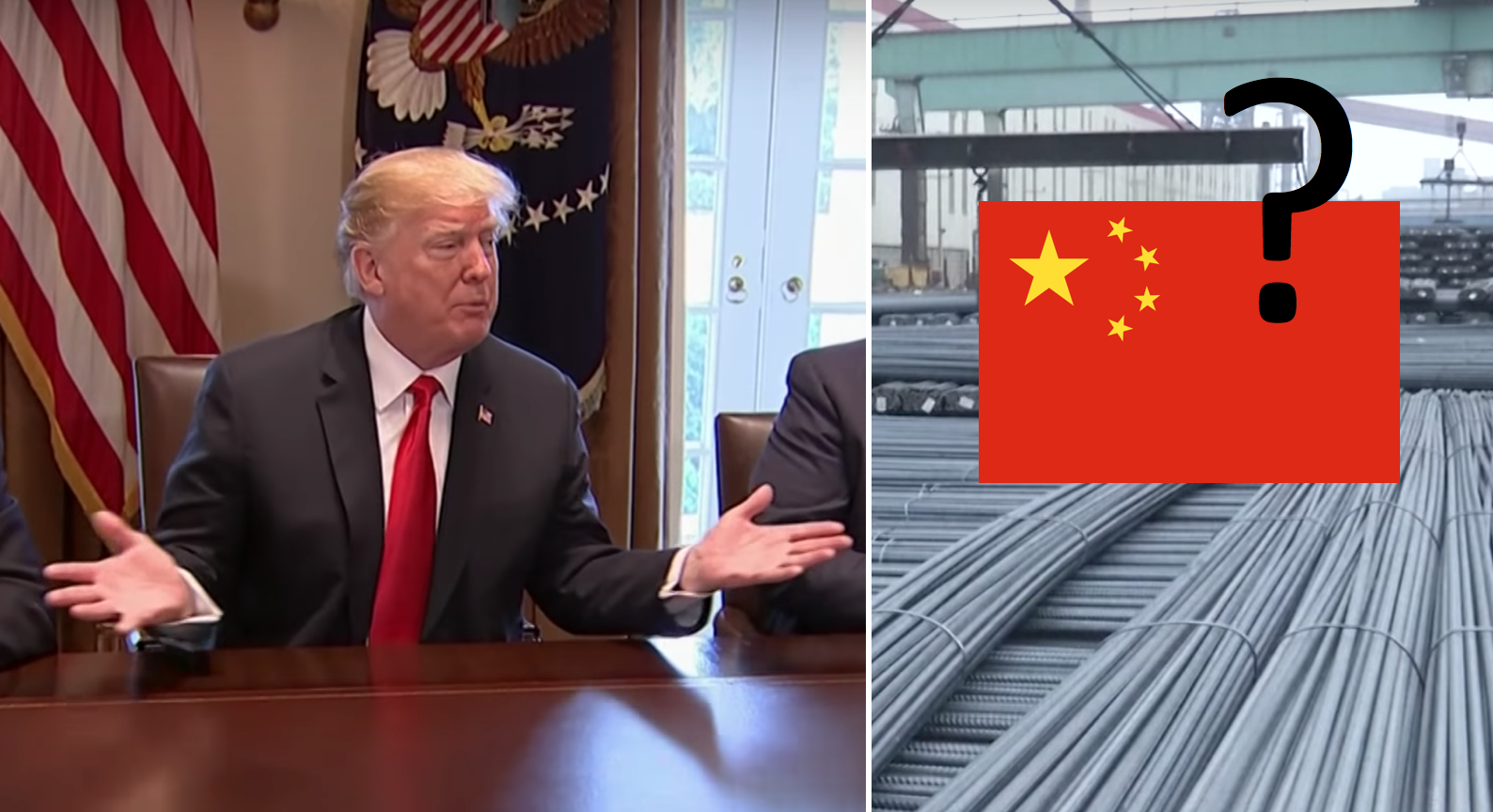US president Donald Trump announced last Thurs (Mar 1) that he wants to apply global tariffs of 25% on steel imports and 5% on aluminium imports. He was fulfilling his campaign promise of using trade restrictions to give the US' 'Rust Belt' a chance for regrowth.
The move, which has drawn criticisms, was widely seen as being targeted specifically at China, despite China not being one of the top 10 countries the US imports steel from.
Instead, analysts say that the measure will hurt long-time US trading partners such as Canada the most, rather than China.
Move will hurt Canada the most, not China
China minimally affected
China has been widely accused of dumping cheap steel on global markets, putting pressure on other foreign competitors.
Previous administrations have slapped anti-dumping duties on Chinese steelmakers, but the measures only dampened Chinese steel exports slightly.
The Trump administration has also previously pressed China to impose steep cuts on steel production to take pressure off US mills, but to no avail.
Although China is a major steel exporter itself, it doesn't export that much steel to the US as other trading partners.
In fact, it only accounts for a measly 3% of American steel imports, by value.
China's total exports of steel and aluminium to all countries also barely make up 0.5% of its GDP.
So, even if China loses access to the American market, there'll be minimal impact on its growth.
There's another reason why the move is not going to be effective on China.
In response to the Trump administration slapping punitive duties on imported solar cells in Jan this year, China has responded by saying it'd launch an anti-dumping investigation into US exports of a type of animal feed called sorghum.
As China imports little US sorghum, the move was mainly seen as a warning that should an all-out trade war happen, Beijing might target US soybean exports instead, which are much larger.
Move will affect Canada the most
The recent move, though targetted at China, is said to harm US allies the most, and Canada will be the one to take the brunt.
This is because Canada is the largest supplier of steel to its southern neighbour -- it supplies 16% of US demand for steel.
Together with Brazil, Korea, and Mexico, they produce almost half of the steel imported by the US.
Canada has said that it'd view any restrictions on its exports to the US of the metal as "absolutely unacceptable".
An analyst quoted on The Financial Times even says that Trump's decision would drive Washington's allies closer to Beijing.
This is because should ties between US and its allies such as Japan, South Korea, Australia and India, worsen because of the tariff hike, China would stand to gain.
Close coordination with its allies is what the US needs should it want to contest rising Chinese power.
[related_story]
Tariffs little impact on Singapore but not all is well
According to OCBC economist Selena Ling who was quoted in The Straits Times, the tariff is not going to have much of an impact here in Singapore.
This is because steel and aluminium make up very little of Singapore's total trade, with steel and iron combined accounting for 0.5% of total exports and 0.7% of total re-exports last year.
And while the diversion of supply of steel and aluminium from the US to Southeast Asian markets could mean lower prices of the commodity for local manufacturers, the concern for Singapore is that it could lead to a global trade war -- which would be extremely harmful to Singapore's open economy.
At the recent Budget Debate, Singapore's Foreign Minister Vivian Balakrishnan said that Singapore -- which makes solar panels -- became "collateral damage" when the US imposed tariffs on solar panels, even though the target was China and Korea.
Top image adapted via RT/YT
If you like what you read, follow us on Facebook, Instagram, Twitter and Telegram to get the latest updates.
